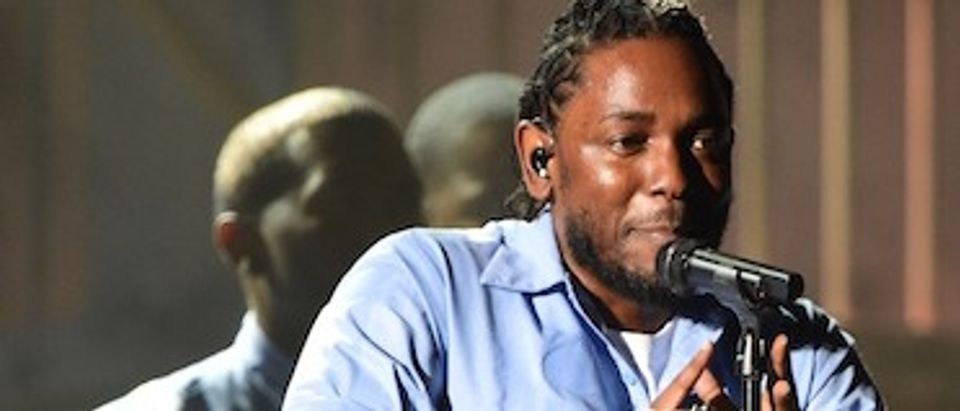Yeah, it still exists for people who disagree with us, my conservative brothers and sisters.
Kendrick Lamar’s latest album, “Damn,” is an exceptional example showing the cultural divides our country is suffering from. You can disagree with me all you want; but, the album is not only well done (if you are into this type of music like I am), it is a perfectly valid commentary on the mainstream “conservative” media that encompasses Fox News and the concept of Trumpism.
Simply, I disagree with the concept of Trumpism and few other areas that he points too; but Lamar’s album is his way of exercising his First Amendment rights of expression.
Now, with that, let’s engage in some dialogue that actually can furnish my justification for this. Kendrick, jump in whenever you feel necessary.
Yes, I heard the lyrics. After being one of the many to pre-order the album on iTunes, it got instantly added to my music library. Still, well spent money, in my book.
Regardless of what the lyrics say, though, I will contend that the result of his lyrics and the somber tone associated with them (if you have heard the album) comes from the controversy of race and current race relations in the United States.
I am white, that’s pretty obvious. Heck, my last name is as Irish as they come; however, it is a wide held sentiment among African American populations that there is a racial component to economic inequities found in our state of affairs.
The fact here, though, is that I believe that the disparities in this capacity are cultural based but I am not going to open that can of worms.
On the issue at hand, Lamar is bringing the genre of hip-hop back to humble political roots. It’s justified. The question we face now is clear: Do we allow for a marketplace of ideas to succeed in this scenario?
Already, I have seen the crazy response of Trump supporters calling for a boycott of the album. Some of the posts are more racially driven than others. Though, I am not saying that we cannot say these things because we all have the ability to exercise a freedom of expression; however, what I am presenting is an argument that focuses on the slew of sensitive topics, for liberals and conservatives, to discuss.
We have to admit that we can’t say that the music hasn’t opened a dialogue… I am justifying the man’s freedom of speech here.
Other politically charged topics like police brutality and Black Lives Matter are mentioned; however, there is no problem as long as his words and thoughts aren’t taken seriously.
We don’t need any activists of any ideology to do physical harm to people. That isn’t protesting. Lamar’s album is his protest and it’s protected.
When you connect all of this, in the end, the intersection of pop culture and politics is ruled by the opinions that are contrary to the political climate.
The media can even be more liberal than a liberal president’s agenda.
Vested in the free market, though, the sentiment rising from the album and Lamar’s fan base is derived to the sentiment that it “pays” and the demographical components of the target audience.
Who cares, though? I don’t. The music will be on the radio, Spotify, and your Pandora mix. So, suck it up if you hate it. As you have the freedom to hate, Lamar has the freedom to express. Don’t you just love free societies?
Regardless of any of this, the fight that the entertainment industry, despite the vertical of the media, is consistently challenged. And, of course, the challenge is coming from the government.
The courts in certain cases have sided with a government’s ability to suppress someone’s conscience and freedom of expression. A quintessential case of music censorship can only be made on the grounds that there is a threat to someone’s life or well-being. However, despite very few exceptions, there is no ground, legally.
Ken Paulson, the president of the First Amendment Center, once said, “The First Amendment allows us to say what’s on our minds. That freedom doesn’t disappear just because the message has a backbeat.”
Outside of anecdotes and caffeinated thoughts, the First Amendment protects more than just faith, political speech, and the vultures in the media (guilty as charged). In fact, any form of creative expressions like dancing, music, photography, art, and film is protected speech.
One similar case that I can point to that brings hip-hop/rap at odds with President Trump was Snoop Dogg’s music video depicting him shooting a Trump clown. Though, a tad more extreme, the depiction of this is protected by the free-speech provisions of the First Amendment.
Get over the lyrics. Freedom to say and believe what you wish still applies in this scenario.


